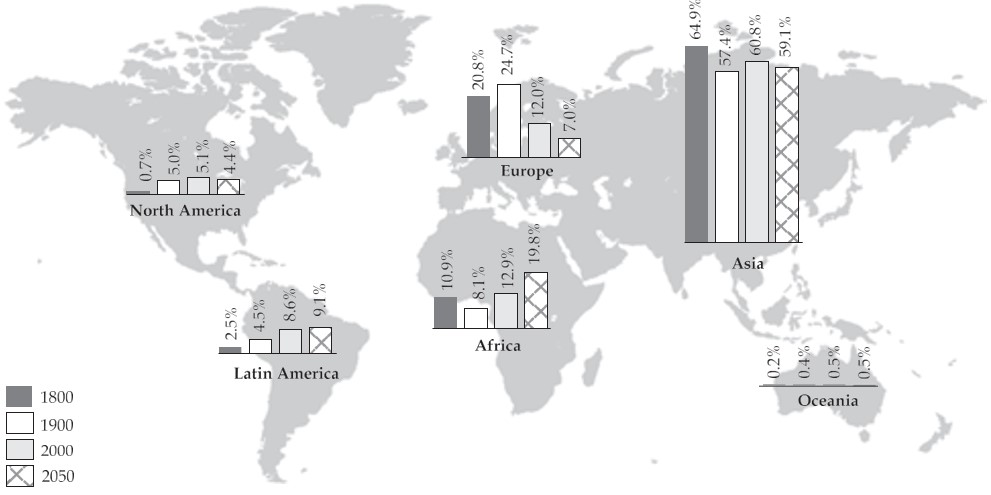Corporate Sustainability and Responsibility in Agro Business: Creating Value for Sustainability in Society and the Environment
Abstract
Scholars and companies are making efforts in broadening the knowledge and image of corporate sustainability and corporate social responsibility. In light of this direction, this paper reports on how agro businesses are affecting the well-being of humans, the environment, and the corporate sector. This study adopted to review published electronic journal articles on corporate sustainability and corporate social responsibility shedding light on the challenges, threats, and solutions of agro-business. Furthermore, the study critically analyzes some of the latest value-based sustainability constructs. This review provides a conceptual understanding of sustainability and corporate responsibility. Responsible business practices foster the creation of economic and social value by realigning business objectives with stakeholder management and environmental responsibility. The study adds to the literature and is a critical insight to organizations regarding sustainability in agro business and corporate social responsibility.
References
Audsley, E., Brander, M., Chatterton, J., Murphy-Bokern, D., Webster, C., & Williams, A. (2009). How low can we go? An assessment of greenhouse gas emissions from the UK food system and the scope to reduce them by 2050. WWF-UK.
DECC Renewable Energy in 2015 published (June 2016). Retrieved from https://www.gov.uk/government/statistics/energy-trendsjune-2016-special-feature-article-renewable-energy-in-2015.
Elkington, J. (1994). Towards the sustainable corporation: Win-win-win business strategies for sustainable development. Calif. Manage. Rev. 1994, 36, 90-100. https://doi.org/10.2307/41165746
FAO. (2011). Save and grow – a policy maker’s guide to the sustainable intensify cation of smallholder crop production. Plant Production and Protection Division, Food and Agriculture Organization of the United Nations, Rome. 101 pages.
Farooq, Q., Fu, P., Liu, X., & Hao, Y. (2021). Basics of Macro to Micro-Level Corporate Social Responsibility and Advancement in Triple Bottom Line Theory. Corporate Social Responsibility and Environmental Management. https://doi.org/10.1002/csr.2069.
Farooq, Q., Hao, J., Liu, X., Xiao, D., & Hao, Y. (2020a). Social and Environmental Development: Fresh Concepts and Soft Measures towards Sustainable Development. Sustainable Development, 28(6), 1796-1803. https://doi.org/10.1002/sd.2075.
Farooq, Q., Liu, X., Fu, P., & Hao, Y. (2020). Volunteering Sustainability: An Advancement in Corporate Social Responsibility Conceptualization, Corporate Social Responsibility and Environmental Management, 27(6), 2450-2464. https://doi.org/10.1002/csr.1893
GoS. (2011). Foresight project on global food and farming futures, Synthesis Report C12: Meeting the challenges of a low-emissions world, UK Government Offi ce for Science, London. Retrieved from http://www.bis.gov.uk/assets/bispartners/foresight/docs/food-and-farming/synthesis/11-632-c12-meeting-challengesof-low-emissions-world.pdf
HM Government. (2006). Climate change, the UK programme. Retrieved from https://www.gov.uk/government/uploads/system/uploads/attachment_data/file/532963/Renewable_energy_in_2015.pdf 32
Jenkins, W. (2009). Berkshire encyclopaedia of sustainability: The spirit of sustainability, 1 (1st ed.). Berkshire: Berkshire Publishing Group.
Kuhlman, T., & Farrington, J. (2010). Sustainability 2010, 2, 3436-3448. https://doi.org/10.3390/su2113436
Mason, Michael (2011). The sustainability challenge. In: Brady, John and Ebbage, Alison and Lunn, Ruth, (eds.) Environmental Management in Organizations. Earthscan, London, UK, pp. 525-532. ISBN 9781849710626
Nelson, G. C., Robertson, R., Msang, S., Zhu, T., Liao, X., & Jawajar, P. (2009). Greenhouse gas mitigation –issues for Indian agriculture. Discussion paper 00900, International Food Policy.
Ram, N., Prahalad, C. K., & Rangaswami, M. R. (September 2009). Why Sustainability Is Now the Key Driver of Innovation, Harvard Business Review, 57-64.
Rosen, M. A. (2007). Future trends in engineering education. In Innovations 2007: World Innovations in Engineering Education and Research; Int. Network for Engineering Education and Research (iNEER) in cooperation with Begell House Publishers: Arlington, VA, USA, 2007; pp. 1-12.
Sachs, W. (2010). Environment. In W. Sachs (Ed.), The Development Dictionary: A guide to knowledge as power (2nd ed.) (pp. 24-37). London, New York: Zed Books.
Saunders, C., & Hayes, P. (2009). Air freight transport of fresh fruit and vegetables, Research report 299, Agribusiness and Economic Research Unit, Lincoln University, New Zealand. 48 pages. Retrieved from http://researcharchive.lincoln.ac.nz/dspace/bitstream/10182/248/1/aeru_rr_299.pdf
Shiva, V. (2010). Resources. In W. Sachs (Ed.), The Development Dictionary: A guide to knowledge as power (2nd ed.) (pp. 228-242). London, New York: Zed Books.
Smil, V. (2008). Energy in nature and society- general energetic of complex systems, MIT Press, Cambridge, Massachusetts. 512 pages.
Smith, P., Martino, D., Cai, Z., Gwary, D., Janzen, H., Kumar, P., …Smith, J. (2007). Greenhouse gas mitigation in agriculture. Phil. Trans. R. Soc. B., 363, 789-813. https://doi.org/10.1098/rstb.2007.2184
Steinfeld, H., Gerber, P., Wassenaar, T., Castel, V., Rosales, M., & de Hann, C. (2006). Livestock’s long shadow. FAO.
Subramanian, N. (2007). Sustainability challenges and solutions. The Indian Concrete Journal, December, 2007.
Sustain. (1999). Food Miles: Still on the Road to Ruin? Sustain, London
Sustain (2001). Eating Oil – Food in a Changing Climate Sustain, London
Svirezhev Y. M. (2000). Thermodynamics and ecology, Ecological Modelling, 132: 11–22, 2000. https://doi.org/10.1016/S0304-3800(00)00301-X
The Global Land Outlook, first edition. United Nations Convention to Combat Desertification. 2017. Bonn, Germany.
Tukker, A., Huppes, G., Guinée, J., Heijungs, R., … Nielsen, P. (2006). Environmental Impact of Products (EIPRO). Analysis of the life cycle environmental impacts related to the final consumption of the EU-25. Main report IPTS/ESTO project.
UNEP. (2007). Global Environment Outlook 4: Environment for Development, United Nations Environment Programme, Progress Press, Valletta, Malta. Retrieved from http://www.unep.org/geo/geo4/report/GEO-4_Report_Full_en.pdf


This work is licensed under a Creative Commons Attribution 4.0 International License.
Copyright for this article is retained by the author(s), with first publication rights granted to the journal.
This is an open-access article distributed under the terms and conditions of the Creative Commons Attribution license (http://creativecommons.org/licenses/by/4.0/).






















